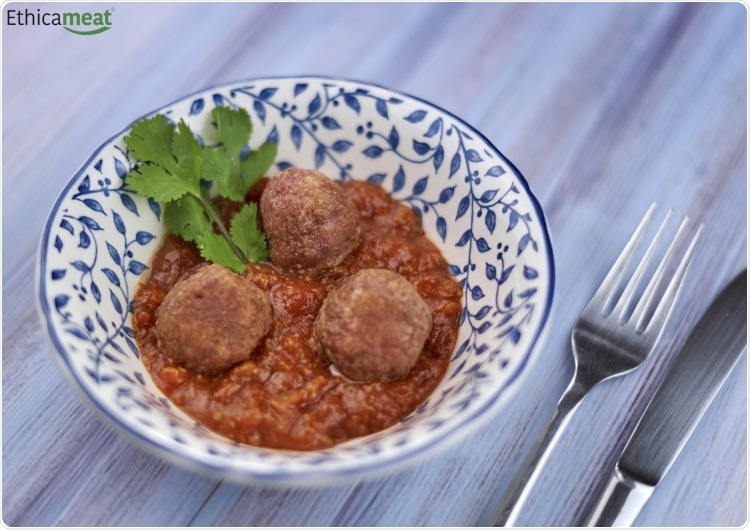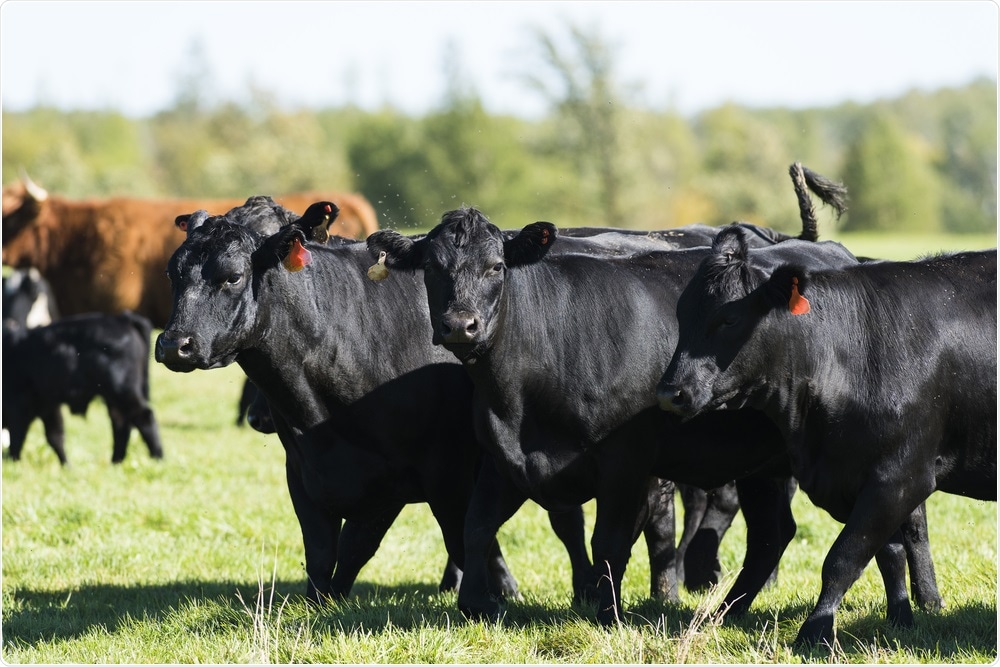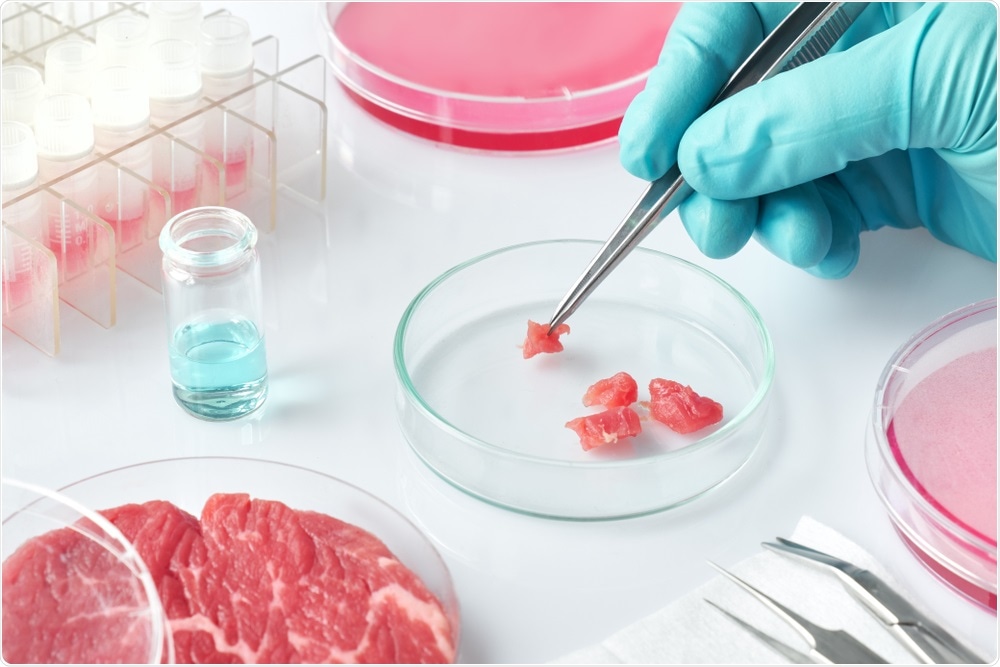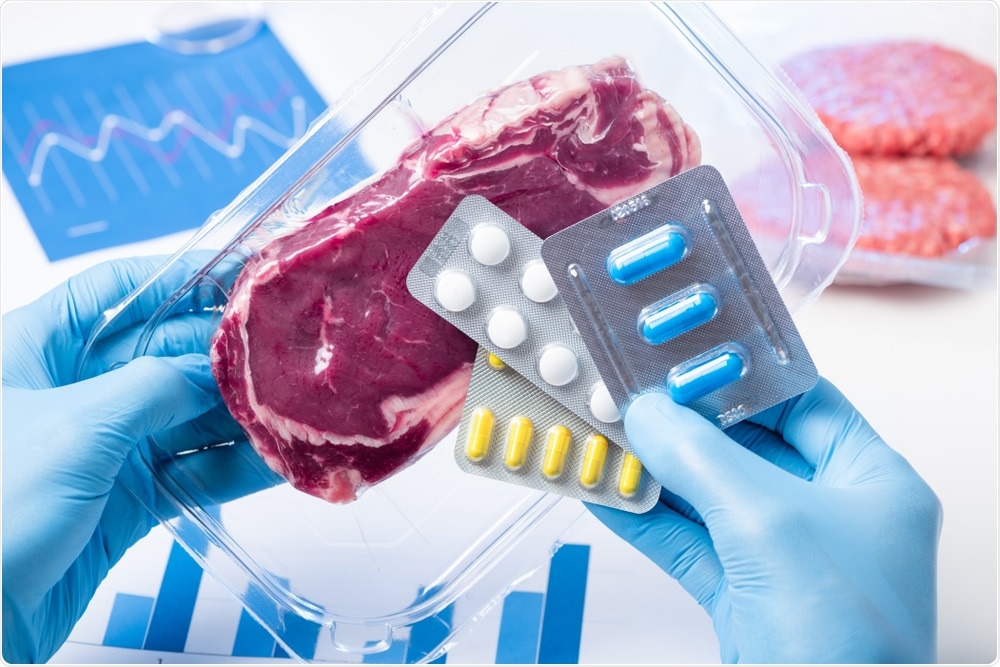AZoLifeSciences speaks to Iñigo Charola, the CEO and Co-Founder of BioTech Foods, about the importance of sustainable food production, and how the development of cultured meat can help meet increasing food demands.
What is the aim of BioTech Foods?
BioTech Foods is one of the few initiatives worldwide that develops technology for the production of cultured meat. Animal tissue is reproduced in a controlled environment using cell culture technology, making it unnecessary to breed and slaughter animals for food.
BioTech Foods aims to respond to a global problem. We have seen an increase in demand for protein for the last 70-80 years. It has been amazing how it has increased. This is coming from two factors. One is an ever-growing population and still, it is growing. It is going to hit 9.7 billion people by 2050.
The other one is that more people are adding a more balanced diet to their lives. They are consuming more proteins and that is also a very good thing. The main production technology that has been meeting this demand increase is factory farming.
Factory farming has been a very good and very efficient system to meet this demand increase, but like any other system, it has its limitations. These limitations are now larger than we expected, and they will be even larger in the future creating a sustainability problem. Sustainability in terms of environmental sustainability and also animal welfare sustainability.
We were looking at different technologies that can really produce alternative sources of protein. One of them is plant-based. They have been with us for a long time, but very recently they have been able to create attractive consumer products. This is because they have been able to remove the taste from the pea or the soy protein, and really create these tasty products.
But we believe cultivated meat is the only technology that will allow us to create high biological content protein. So that is a protein that has all the essential amino acids in one intake. Also, we will be able to do it in a very efficient and natural way, because you only use the cells to grow what you really need, which in our case, is the muscle where the protein is.

Image Credit: BioTech Foods
Why has the global production of meat grown over the years?
This is due to the increasing world population. According to the Food and Agriculture Organization of the United Nations (FAO), global demand for meat is projected to increase by 70% to feed a population of about 9.7 billion people by 2050. Meat remains the main source of protein in the global diet, as it contributes to a high biological content rich in amino acids.
But we are also seeing that there is a difference in protein consumption between developed countries and developing countries. That is something around 30 or 40% difference. This will also mean more and more consumers demanding protein.
Do you believe that as the population continues to increase, we will struggle to meet food demands?
I think that we will not struggle to meet food demand, but I think we will suffer the side effects of factory farming, and side effects are a problem.
For example, environmental sustainability, in terms of greenhouse gas emission. Meat is responsible for, according to the United Nations, 15% of all greenhouse gas emissions on the planet. That is more than all transport put together including cars and trains, ships, and planes.
The Covid-19 pandemic has affected all areas of society, including the global food system. This public health crisis has also affected chains of production and food distribution, giving rise to a certain shortage of products in some international markets. In this context, the future of the alternative proteins additionally represents a way to diversify traditional meat production systems.
What is clear is that we need alternative strategies such as cultivated meat to reduce the environmental impact of the current model of meat production. Several technologies are being developed to offer alternative sources, such as plant-based proteins, proteins from insects, and algae.
Cultured meat is initially proposed as a strategy to offset the environmental, animal welfare, and health implications of conventional farming, but not as a single solution.

Image Credit: Arthimedes/Shutterstock.com
Why is it important to find sustainable ways to meet these needs?
Because we are in an unprecedented climate emergency. To give you an idea, the cells extracted from a pig in one year can produce the same as those obtained from 400 pigs in traditional factory farming. This means a significant reduction in environmental impact, as the cultivated meat will consume 99% less land, 75% less water, and produce 90% fewer emissions than a similar meat product today. And all this by avoiding animal slaughter.
Can you describe why the current production of animals for food is inefficient?
It is unsustainable as the only productive system to meet the demand for meat of the world's population. Hence the need to focus on alternative proteins which, like cultivated meat, also offer greater food security.
Its development in a 100% safe biological environment, without exposure to well-known viruses such as African swine fever and other zoonotic diseases such as that which may have caused COVID-19, is a great advance that prevents the death of many animals and the risk of intoxication for consumers.

Image Credit: Steve Oehlenschlager/Shutterstock.com
Why is beef the largest food source of environmental destruction?
Livestock feeding, based on feed, is the main driver of the expansion of monocultures worldwide and, therefore, of deforestation, using a large amount of water and soil for their production. 80% of all agricultural land worldwide is used for food.
To produce one kilo of beef, 15,000 liters of water are needed, according to FAO data. The same amount of water used by one person in 100 days. In terms of GHG emissions, meat is responsible for 15% of all GHG emissions, more than all transportation, according to the UN.
Can you describe how you produce cultured meat?
The key to the production system of this meat is in regenerative medicine. With the right environment, cells extracted from a living animal can multiply themselves, and grow properly in a bioreactor. This cell extraction is placed in a controlled environment of humidity and temperature so that the tissue continues to form through a natural process of cell proliferation.
In our case, our products are obtained 100% naturally from a tissue sample extracted painlessly from the animal. These cells proliferate in a controlled biological environment, identically as they would do in the animal's own body, without any genetic modification in the process.
The technology we use has been in place for decades. So, in that regard, it is a very safe and demonstrated technology. It has been used for at least two, three decades to regenerate skin, bone, and other tissues safely. But what we have to do now is to use that technology for producing a product that responds to different parameters in terms of volue and cost.
What are the benefits of eating cultured meat compared to traditional meat?
Our cultured meat is a sustainable alternative to the high cost of animal life and natural resources required by traditional meat. It is a meat that respects animal welfare, reduces environmental impact, and is free from pandemics, as the animals we sample are in perfect health and are not exposed to viruses or bacteria throughout the process.

Image Credit: anyaivanova/Shutterstock.com
Does cultured meat have the same nutritional benefits as traditional meat?
Proteins of animal origin have high biological value because they contain all the essential amino acids we need. However, vegetable proteins lack some amino acids (or have them in small proportions) and therefore we must combine foods to achieve these deficiencies.
Cultured meat contains all the essential amino acids, giving us the same protein value as traditional meat.
Do you believe that if people swapped to eating cultured meat, we could help to protect the planet?
Of course. Cultivated meat is a sustainable alternative to the high cost of animal life and natural resources required by factory farming. It is meat that respects animal welfare. I believe this is a unique meat product that will revolutionize the way we eat meat.
Most market research and predictions say that by the end of this decade, cultured meat will be an important part of the protein that we consume. I think by that point, we will really see the huge benefits that this would bring.

Image Credit: nevodka/Shutterstock.com
Could the widespread use of cultured meat help to reduce the problem of antibiotic resistance?
80% of all antibiotics in the world are used in factory farming, this is causing great concern for antibiotic resistance. Cultivated meat does not require the use of antibiotics since it is produced in a sterile environment, therefore this will contribute to reducing the problem of resistance.
What are BioTech Foods next steps into cultured meats?
After a Lab-scale stage and with an already tested technology, BioTech Foods is currently working in the industrial production of cultivated meat. Once we have achieved industrial scale and we'll get regulatory compliance established by the European Union, we believe that cultured meat processed products will be a reality on our tables sooner than expected.
Where can readers find more information?
https://www.biotech-foods.com/
About BioTech Foods
Iñigo Charola, Co-Founder & CEO at Biotech Foods.
Business Administration and Management graduate from the University of Wales, Master in Marketing Management from ESIC Business & Marketing School and MBA from the University of Deusto, as well as numerous leadership programs in Business Administration.